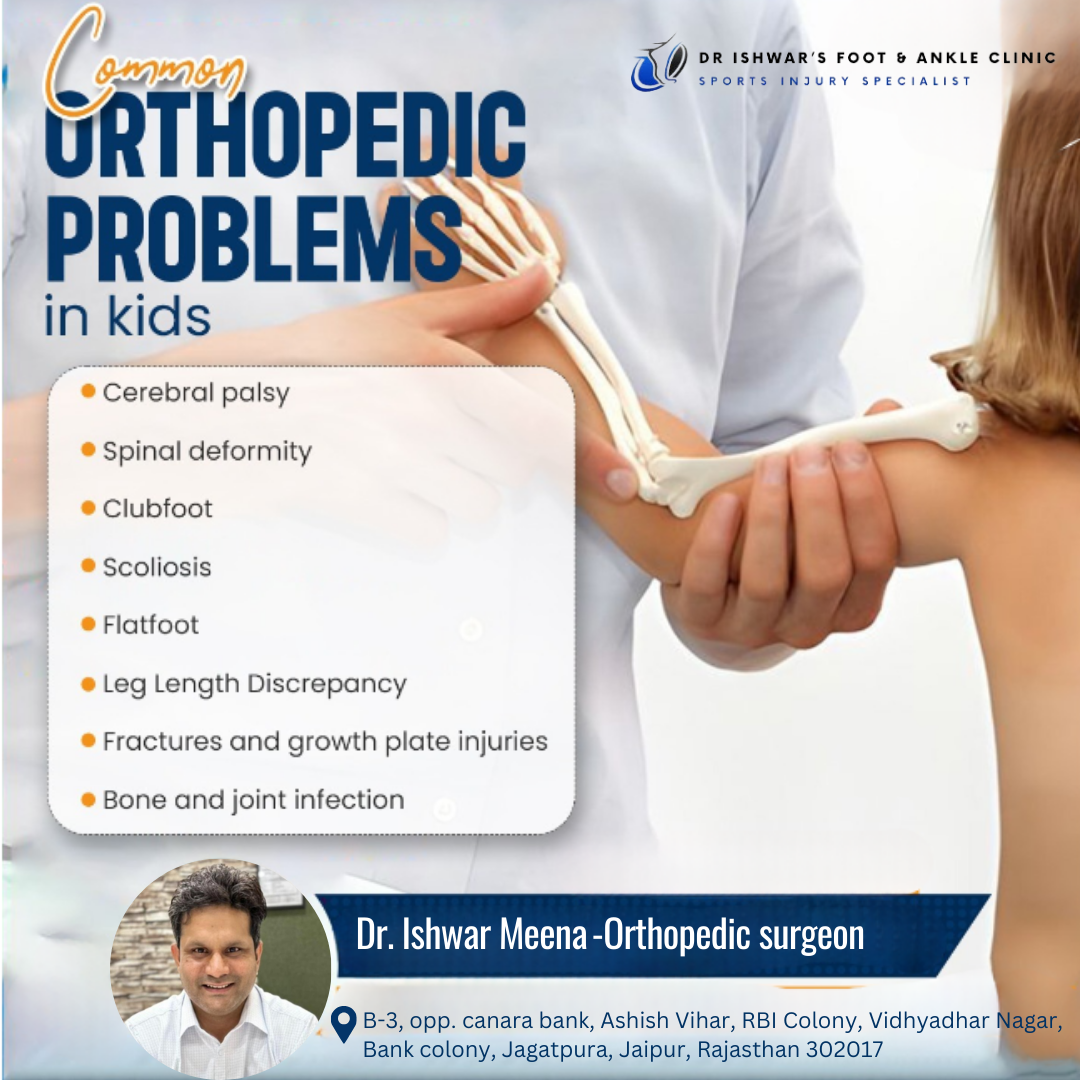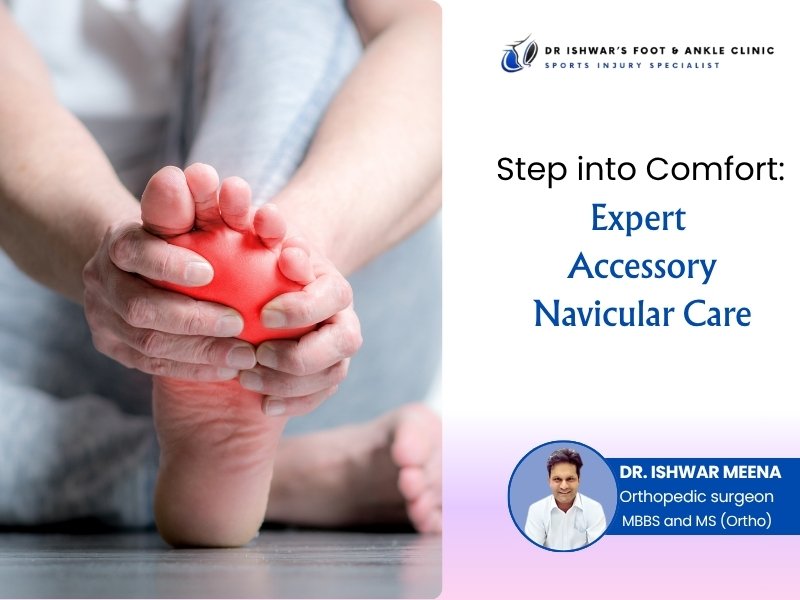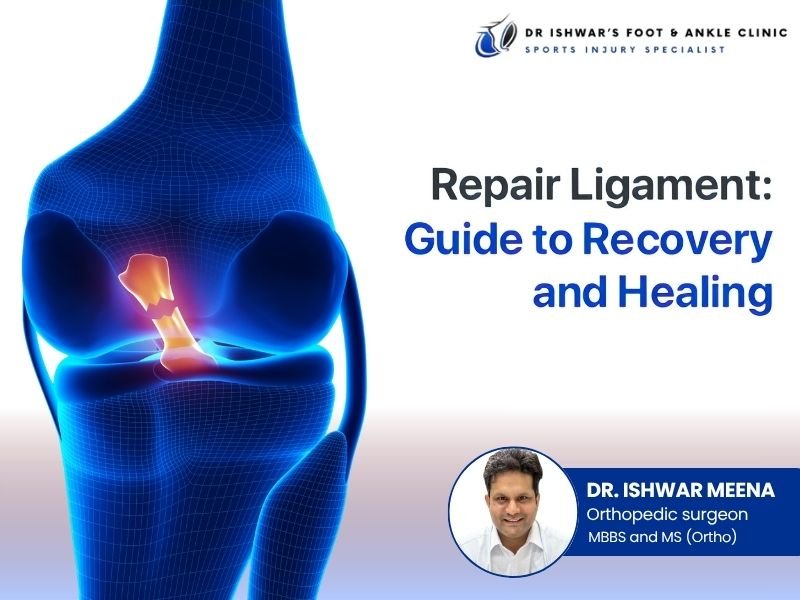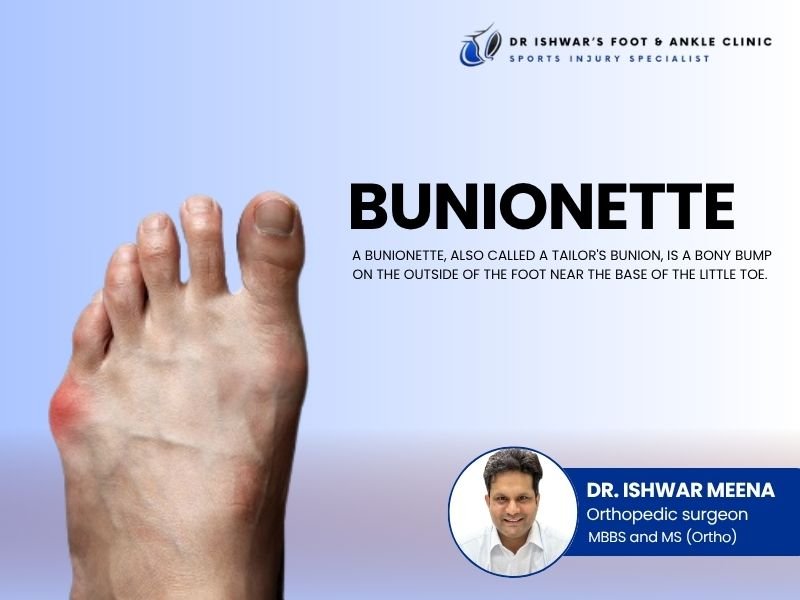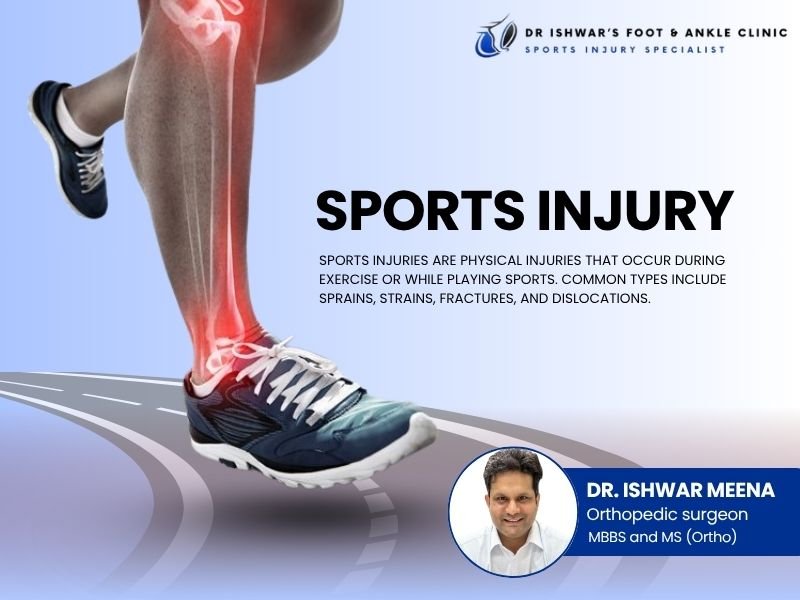Have you ever wondered how doctors help children who hurt their bones or joints? It’s not just any doctor who can treat kids with bone problems. There is a special kind of doctor called a Pediatric Orthopedic Surgeon. These doctors are experts in treating bone, muscle, and joint problems in children. In this blog, we’ll talk about what a Pediatric Orthopedic Surgeon does and why Dr. Ishwar Meena, one of the best Pediatric Orthopedic Surgeons in Jaipur, is a great choice to take care of kids’ bone health.
What is a Pediatric Orthopedic Surgeon?
A Pediatric Orthopedic Surgeon is a doctor who takes care of bones, muscles, and joints in children. When kids fall and break a bone, twist an ankle, or have problems with their muscles or joints, these doctors are the ones who help them feel better.
These specialists don’t just help with broken bones; they also treat problems like:
- Joint pain – pain in the knees, hips, or shoulders.
- Deformities – when bones or joints don’t grow the right way.
- Sports injuries – like sprained ankles or torn ligaments.
- Scoliosis – a condition where the spine curves in a way it shouldn’t.
Kids’ bones and bodies are different from grown-ups, so Pediatric Orthopedic Surgeons are specially trained to understand how children’s bones grow and heal. They know that children’s bones are still growing, which means they need special care.
When Do Kids Need a Pediatric Orthopedic Surgeon?
Sometimes, kids hurt themselves while playing, and it’s not always easy to know when to see a doctor. Here are some situations where you should see a Pediatric Orthopedic Surgeon like Dr. Ishwar Meena:
- Broken bones – If a child falls and breaks a bone, they will need to see a Pediatric Orthopedic Surgeon to make sure it heals properly.
- Twisted or sprained joints – Kids who twist an ankle, knee, or wrist might need a doctor to help treat the injury and avoid future problems.
- Pain in the legs or back – If a child feels pain when walking, jumping, or playing, it could mean there’s something wrong with their bones or joints.
- Scoliosis or curved spine – Sometimes, kids have a curved spine. This can affect how they stand or walk. A Pediatric Orthopedic Surgeon can help find the best treatment.
- Growing pains – Some kids have aches in their bones as they grow. A Pediatric Orthopedic Surgeon can help parents understand what’s normal and when it’s time to get checked out.
What Does a Pediatric Orthopedic Surgeon Do?
A Pediatric Orthopedic Surgeon does many things to help kids with bone and joint problems. Here’s a quick look at what they might do:
- Examine the Child
When you visit the doctor, they will first examine the child to see where it hurts. They might ask about how the injury happened and how long the pain has been there. This helps the doctor understand what could be causing the problem.
- X-rays and Tests
Sometimes, the doctor needs to take a picture of the bones inside the body to see if there is a break or problem. They do this using X-rays or other special tests like MRI or CT scans. These pictures help the doctor see what’s going on inside.
- Treatment Plans
Once the doctor knows what the problem is, they will create a treatment plan. This could mean giving medicine to help with pain, using a cast to help a bone heal, or sometimes even surgery to fix a broken bone or joint.
- Surgery (if needed)
If a child has a serious injury or a condition like scoliosis, surgery may be needed. Dr. Ishwar Meena, as one of the best Pediatric Orthopedic Surgeons in Jaipur, is experienced in performing surgeries that can help children recover and live pain-free lives.
- Rehabilitation and Recovery
After treatment, the doctor will help the child with rehabilitation, which means exercises or physical therapy to help the body heal and get stronger. This helps children get back to their normal activities, like playing sports or dancing.
What Can Parents Do to Help?
As a parent, you play an important role in helping your child stay healthy. Here are a few things you can do to prevent bone problems:
- Encourage Exercise – Regular physical activity helps keep bones and muscles strong.
- Good Nutrition – Make sure your child eats a balanced diet with plenty of calcium and vitamin D to support bone health.
- Safety Gear – If your child plays sports, make sure they wear the right protective gear like helmets and pads to avoid injuries.
- Watch for Warning Signs – If your child complains of pain or has trouble walking, don’t ignore it. Early treatment can prevent bigger problems later.

